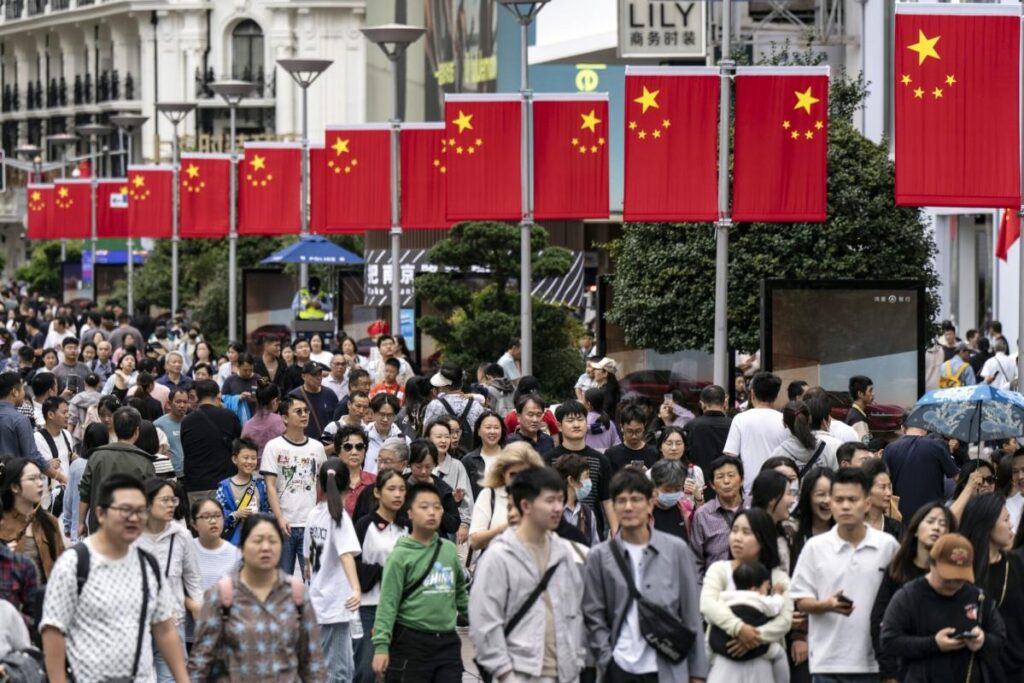(Bloomberg) — A rally in onshore Chinese stocks on their return from a week-long holiday fizzled as traders questioned Beijing’s resolve to add more stimulus. Shares in Hong Kong tumbled.
Most Read from Bloomberg
The benchmark CSI 300 Index was up just about 5% some 90 minutes into trading on Tuesday after surging almost 11% in the opening minutes. The measure had gained for nine straight sessions through Sept. 30 before heading into the Golden Week break. A gauge of Chinese shares listed in Hong Kong tumbled as much as 11%% after having rallied by almost the same amount in the period that onshore markets were shut.
A Tuesday press briefing from China’s top economic planner — the National Development and Reform Commission — to discuss a package of policies aimed at boosting economic growth had little to offer.
“The durability of this China rally will depend on action following words on the fiscal side of the equation,” said Aleksey Mironenko, global head of investment solutions at Leo Wealth in Hong Kong. “The key thing we are watching going forward — what policies will be announced in coming weeks following the Politburo and State Council statements? That will determine if our overweight is a tactical one — to be taken off as relative valuations change – or a strategic one.”
Even before mainland markets reopened, skepticism had been growing over the surge in Chinese shares over the past two weeks. Many strategists and fund managers around the world had viewed the recent rebound with skepticism and waiting for Beijing to back up its stimulus pledges with real money. Some had also become also concerned many stocks are already reaching overvalued levels.
The Hang Seng China Enterprises Index, which comprises Chinese stocks trading in Hong Kong, had jumped more than 30% over the past month through Monday, making it the best performer among more than 90 global equity gauges tracked by Bloomberg.
The world’s second-largest equity market has had multiple boom-and-bust cycles. Confronted by slowing growth and disinflationary pressures, China swung into stimulus mode in late 2014, setting off an eye-watering stock market rally that spectacularly crashed back to earth in mid 2015. Back then, the nation’s retail traders ramped up leverages and sent the Shanghai Stock Exchange Composite Index more than doubled its level from October 2014 to June 2015. Then the equity gauge plunged more than 40% in two months.
“We need fiscal, and then hopefully some real major economic reform,” Eva Lee, head of Greater China equities at UBS Global Wealth Management, said on Bloomberg Television. “By the end of this year, if we still do not have any major measure, we probably will end at this level.’
–With assistance from Tian Chen, John Cheng and Sangmi Cha.
Most Read from Bloomberg Businessweek
©2024 Bloomberg L.P.
Read the full article here

